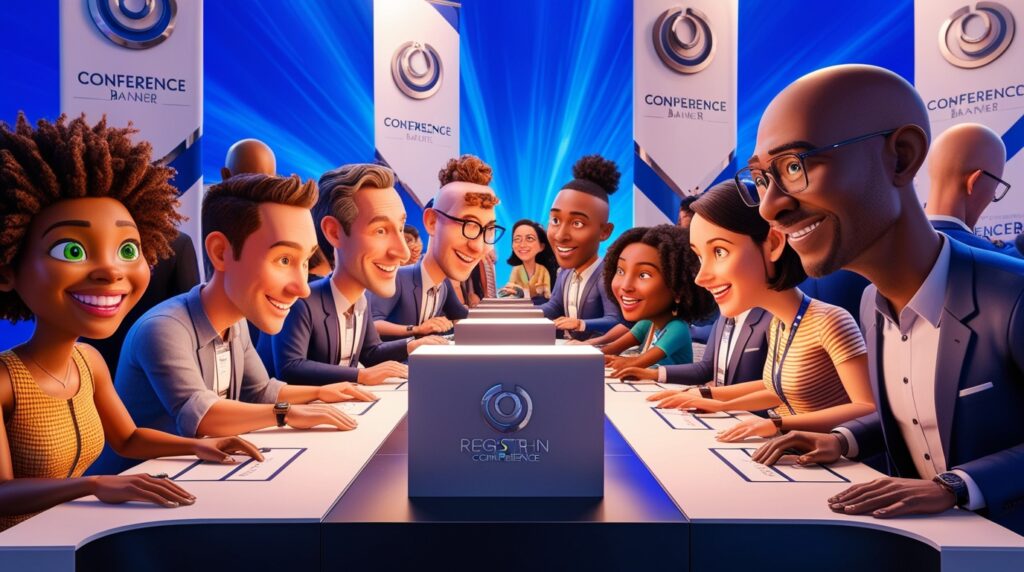Did you know that there are more than 7,000 languages spoken worldwide, yet nearly half are at risk of disappearing within this century? In a world shaped by globalization, technology, and cultural exchange, Language Conferences play a vital role in preserving, studying, and advancing human communication.
A Language Conference brings together scholars, educators, linguists, translators, and cultural experts to explore the power of language in education, society, and technology. For professionals, researchers, and event organizers, these conferences are an opportunity to engage in meaningful dialogue, discover new trends, and contribute to the future of language studies.
What is a Language Conference?
A Language Conference is an academic and professional event dedicated to the study of languages, linguistics, and communication. It covers a wide spectrum of areas, including:
- Linguistics research and language theory.
- Translation and interpretation studies.
- Language education and pedagogy.
- Artificial intelligence in linguistics (such as machine translation).
- Cultural exchange and multilingual communication.
👉 These events serve as hubs for both academic scholarship and real-world applications, making them essential for professionals across disciplines.
Why Attend a Language Conference?
1. Academic Development
Present your research, get published in conference proceedings, and receive peer feedback.
2. Networking Opportunities
Meet linguists, educators, translators, AI developers, and cultural researchers.
3. Professional Growth
Stay updated on new language teaching methods, digital tools, and translation technologies.
4. Cultural Awareness
Engage in discussions that promote multilingualism and cross-cultural understanding.
5. Technology Insights
Learn how AI, natural language processing (NLP), and machine translation are shaping the future of language studies.
Key Themes at Language Conferences
Every year, Language Conferences explore diverse and evolving topics, including:
- Applied Linguistics & Language Learning – Innovations in teaching and second-language acquisition.
- Translation & Interpretation – Best practices in global communication.
- Language & Technology – AI-powered translation, NLP, and digital education platforms.
- Sociolinguistics & Cultural Identity – Exploring how language shapes communities.
- Language Preservation & Endangered Languages – Documenting and revitalizing disappearing languages.
These themes ensure Language Conferences remain relevant to academics, professionals, and policymakers.
Who Should Attend a Language Conference?
Language Conferences attract a wide range of participants:
- Academics & Researchers: Present research, publish papers, and exchange insights.
- Professionals & Industry Experts: Apply language research to business, translation, and AI.
- Event Organizers & Planners: Curate impactful global events.
- Speakers & Thought Leaders: Share expertise in linguistics, education, and technology.
- Journalists, Bloggers & Media: Report on cultural and academic innovations.
Notable Language Conferences
Here are some of the most influential upcoming events:
- International Conference on Applied Linguistics & Language Education
- Focus: Second-language learning, digital pedagogy, and global education.
- Audience: Educators, researchers, and policymakers.
- World Congress of Translation & Interpretation Studies
- Focus: Translation tools, global communication, and multilingual publishing.
- Audience: Translators, publishers, and industry leaders.
- AI & Language Technology Summit
- Focus: NLP, machine translation, and AI-driven communication.
- Audience: AI developers, linguists, and tech experts.
- Conference on Endangered Languages & Cultural Preservation
- Focus: Language documentation, indigenous knowledge, and cultural sustainability.
- Audience: Anthropologists, linguists, and cultural activists.
How to Get the Most Out of a Language Conference
Maximize your experience with these tips:
- Plan Your Sessions: Choose workshops and panels relevant to your goals.
- Network Across Disciplines: Connect with experts in linguistics, tech, and education.
- Engage in Discussions: Ask questions and contribute during Q&A sessions.
- Take Notes & Share Insights: Publish reflections on academic or professional platforms.
- Follow Up After the Event: Maintain connections for future collaborations.
FAQs About Language Conferences
1. What is the purpose of a Language Conference?
To explore research, technology, and cultural exchange related to language studies.
2. Who can attend?
Academics, educators, translators, industry professionals, and students.
3. Do I need to present research to attend?
No. Many attend simply to learn, network, and discover new opportunities.
4. What are the benefits of attending?
Networking, professional development, research recognition, and exposure to new technologies.
5. How can I find upcoming conferences?
Check academic directories or platforms like Conferences Daily.
Conclusion: Shaping the Future of Language and Communication
The Language Conference is more than just an academic event—it is a global stage for cultural exchange, research innovation, and professional growth. By bringing together linguists, educators, researchers, and industry experts, these conferences foster collaboration and inspire the next generation of breakthroughs in communication.
👉 Ready to explore upcoming events?
Find the latest opportunities and join the conversation at Conferences Daily.















